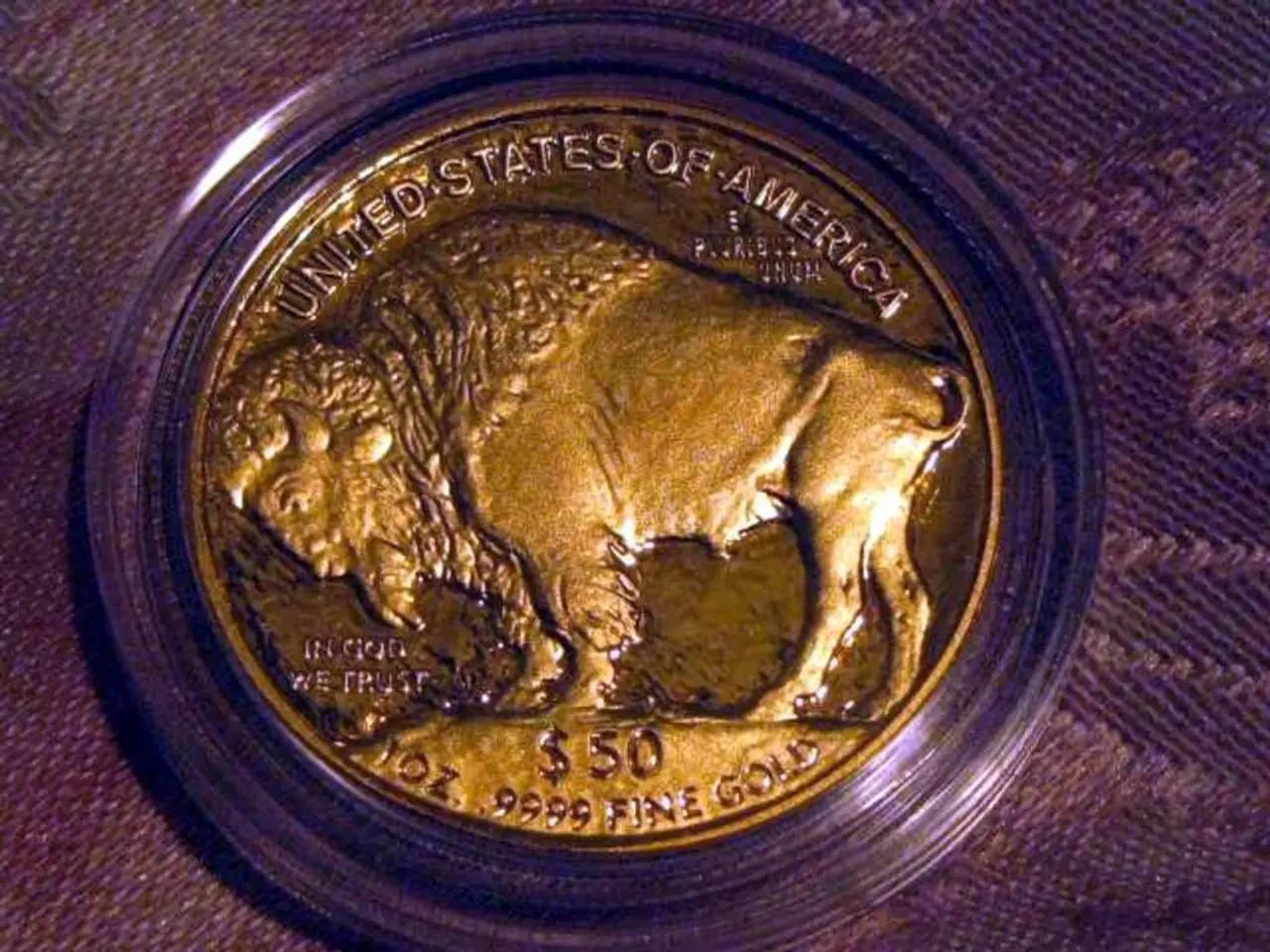Euro's currency predominance faces rivalry from Bitcoin and gold, according to ECB head's perspective
In a guest article in the Financial Times, European Central Bank (ECB) President Christine Lagarde called for a stronger role for the euro in the global financial system. This call comes amidst growing doubts about the leading role of the U.S. dollar and the loss of trust in the currency due to geopolitical tensions and protectionist measures.
The euro already accounts for around 20% of global foreign exchange reserves, but to become a true leading currency, Europe must catch up in three key areas: geopolitical credibility, economic depth, and institutional decision-making capacity. Central banks worldwide are increasing their gold reserves, considering it a neutral store of value outside geopolitical dependencies, which could potentially be at the expense of the Euro.
Meanwhile, Bitcoin, an uncensorable, non-inflationary asset that functions independently of political decision-makers and crises, is evolving as a digital reserve outside the state financial system. Countries like Bhutan, El Salvador, and even individual U.S. states are considering Bitcoin as a long-term hedging instrument. The U.S. is also planning to build and expand a Bitcoin reserve on a national level.
René, a founding member of Blocktrainer and the Chief Operating Officer, has spent many years in the Bitcoin cosmos. He is editorially active and enjoys his role in strategic and organizational tasks. The EU, on the other hand, is focusing on the digital Euro, while Bitcoin advances independently.
In her article, Lagarde emphasized the manipulation of currencies as a factor that has undermined trust in the dollar. Given these geopolitical tensions, Europe must convert its economic strength into geopolitical strength. The current discussion within the European Union about developing strategic autonomy in using the euro as a global reserve currency focuses on strengthening resilience and reducing dependency on external actors.
Efforts include a broader strategy to boost Europe's security, technological capacity, and economic robustness through initiatives like the European Defence Fund and strategic foresight frameworks. However, progress depends heavily on political will, trust, and collective action among member states. This includes not only defense and security but also financial and economic tools to promote the euro’s role globally as part of the EU’s autonomy and resilience agenda.
As early as last week, Lagarde wrote about "changes in the landscape of international currencies" on the ECB's website. The "Global-Euro-Moment" may have arrived, but Bitcoin is already here, presenting a challenge to both the euro and the dollar.
Amidst these developments, a Member of the European Parliament (MEP) has called for a Bitcoin reserve. Many market participants are increasingly questioning the stability of both the euro and the dollar, raising concerns about loss of sovereignty and financial instability due to Trump's crypto policy.
In this evolving financial landscape, it is clear that the race for global currency dominance is heating up, with the euro, the dollar, and Bitcoin all vying for a stronger role. The future of global finance could well belong to the currency that can offer the most stability, independence, and geopolitical credibility.
Read also:
- Deepwater Horizon Oil Spill: BP Faces Record-Breaking Settlement - Dubbed 'Largest Environmental Fine Ever Imposed'
- Meta Unveils Ray-Ban AR Display Sunglasses; TikTok Agrees to $200 Million Deal
- Historic downtown temples to receive restoration funds totaling over 25 million pesos
- Cars' Environmental Impact Explained




